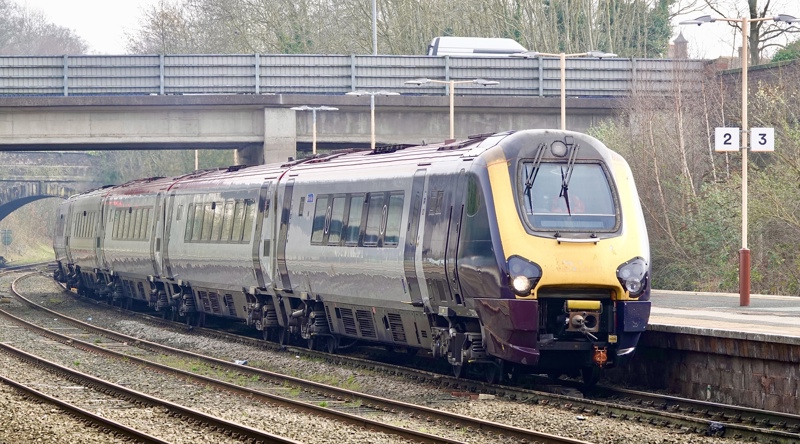
The Office of Rail and Road (ORR) has rejected all three open access applications for the West Coast Main Line.

The Office of Rail and Road (ORR) has rejected all three open access applications for the West Coast Main Line.
Bids by FirstGroup, Virgin and Wrexham, Shropshire and Midlands Railway (WSMR) to run services into London Euston have been turned down by the regulator due to insufficient capacity.
ORR said introducing any of the services “would be detrimental to performance on the WCML and therefore all passengers and freight customers”.
FirstGroup had wanted to start a Lumo service to Rochdale via Manchester Victoria, while WSMR had proposed services to the North Wales through Shrewsbury and Walsall.
Virgin’s was the largest application, planning services to Birmingham New Street, Liverpool Lime Street, Preston and Rochdale.
Explaining the decision further, ORR said: “In the case of these three applications, lack of capacity and the anticipated impact on performance alone meant we could not approve them. As such, our duty to have regard to the funds available to the Secretary of State was not relevant to this decision.”
The latter comment comes after a letter from the Department for Transport to the regulator asking it to consider the cumulative revenue abstraction from all current applications.
Stephanie Tobyn, ORR’s director of strategy, policy and reform, said “it was clear there was insufficient capacity without a serious negative impact on the level of train performance on the WCML”.
She added: “We recognise the potential advantages of competition on the West Coast Main Line, which is why we approved in 2024 the new London-Stirling services that First Group are due to start operating in 2026. However, it is clear that the southern end of the route requires space in the timetable to provide resilience.
“Additional services within the current timetable structure and planned capacity use would further weaken punctuality and reliability, not just at the south end of the WCML but elsewhere as well.”
Decision letter
In its decision letter, ORR said the December 2022 timetable “unlocked an additional hourly an additional hourly path between London and Liverpool, and five daily paths between Euston and Preston/Stirling.
However, the letter added: “Subsequent timetable productions have eroded space in the period since ORR’s decision to approve rights between London Euston and Stirling in March 2024, even without additional rights being allocated.”
ORR said there were nine “theoretical paths in each direction that now act as ‘firebreak paths’”, which are planned gaps in the timetable.
“Network Rail has provided clear evidence that the firebreaks are frequently used,” the decision letter said. “We agree with the view that firebreaks can play an important role in creating a robust and resilient schedule, especially on congested or high-frequency routes such as the WCML.”
FirstGroup, Virgin and WSMR disappointed
Those behind the proposals expressed their disappointment at the decision.
A FirstGroup spokesman said: “We are disappointed at the ORR decision not to approve our application for new Lumo open access services between London and Rochdale via Newton-le-Willows and will continue to explore further potential opportunities for that route (the West Coast Main Line).”
They added: “The independent regulator has an important role to play in balancing additional new open access services for passengers with other users of the network and it is important they are able to complete their work without interference. We set out in our submission to the rail reform consultation the need for a continued role for an independent regulator and reiterate that position today.”
Virgin described the decision as a “blow for consumer choice and competition”, saying its services “would have delivered excellent value for customers and taxpayers alike by adding five million additional seats every year from a trusted brand with a track-record”.
A spokeswoman added: “Anyone who remembers British Rail would rather forget it. Competition improves services, increases rail ridership, and drives better results for everyone, including the taxpayer.
“For now, Virgin is focused on bringing much-needed competition to the cross-Channel route by igniting a new era in international rail services for travellers on both sides of the Channel.”
There was obvious disappointment from WSMR also, with a spokesperson adding:
“We are extremely disappointed with the Office of Rail and Road’s decision to reject our application – the only current application to receive support from the Department for Transport. We have spent the past two years demonstrating that capacity and performance concerns can and would be negated by the industry working together to deliver a better railway for passengers. WSMR would have set new standards for how open access operators can and should work alongside nationalised rail services.
“Since our application was submitted in March 2024, we have received overwhelming support from local people, businesses, councillors and MPs, who all recognise the urgent need for this connectivity. We will now urgently seek to reengage with the ORR and determine our next steps regarding the future of this vital passenger service.”
Login to continue reading
Or register with RAIL to keep up-to-date with the latest news, insight and opinion.


















Duncan Wilson - 04/07/2025 10:07
First Group won't be launching their services in 2026. There are so many problems with the Class 810, many of them serious, that the 222's will not be released in time.